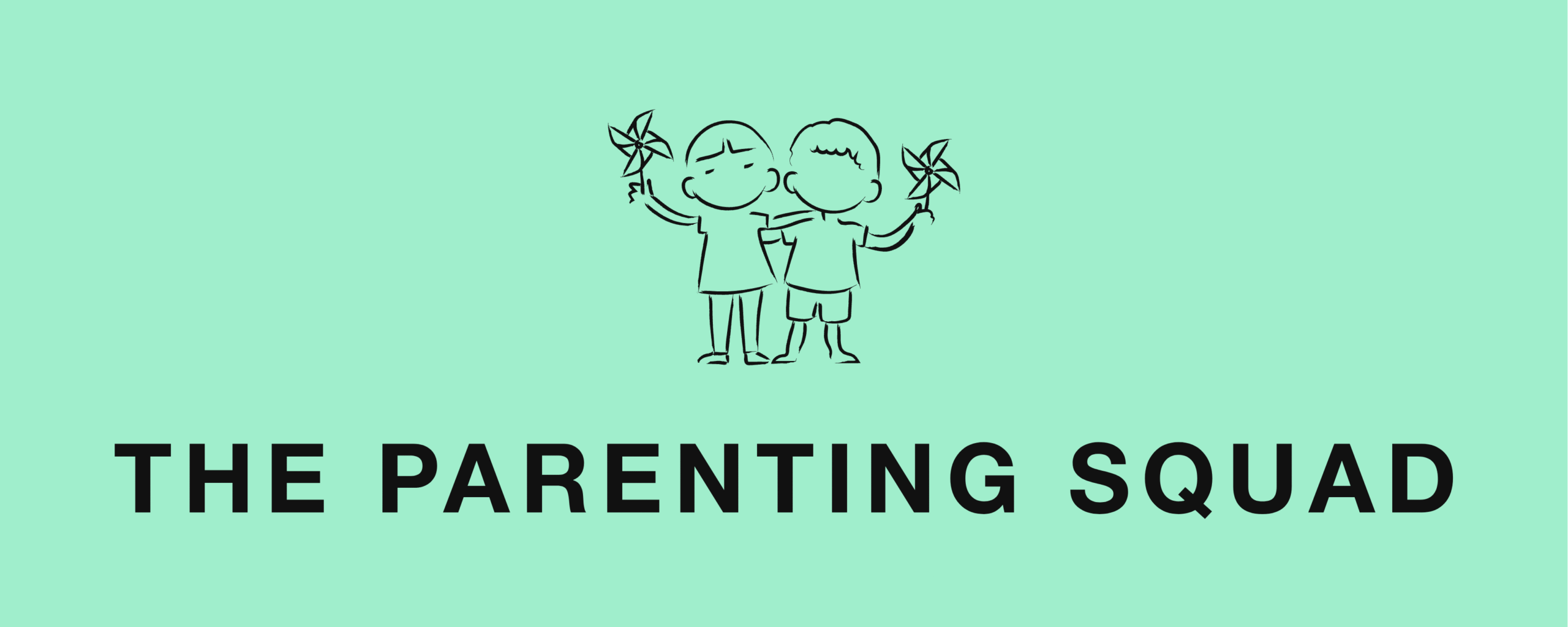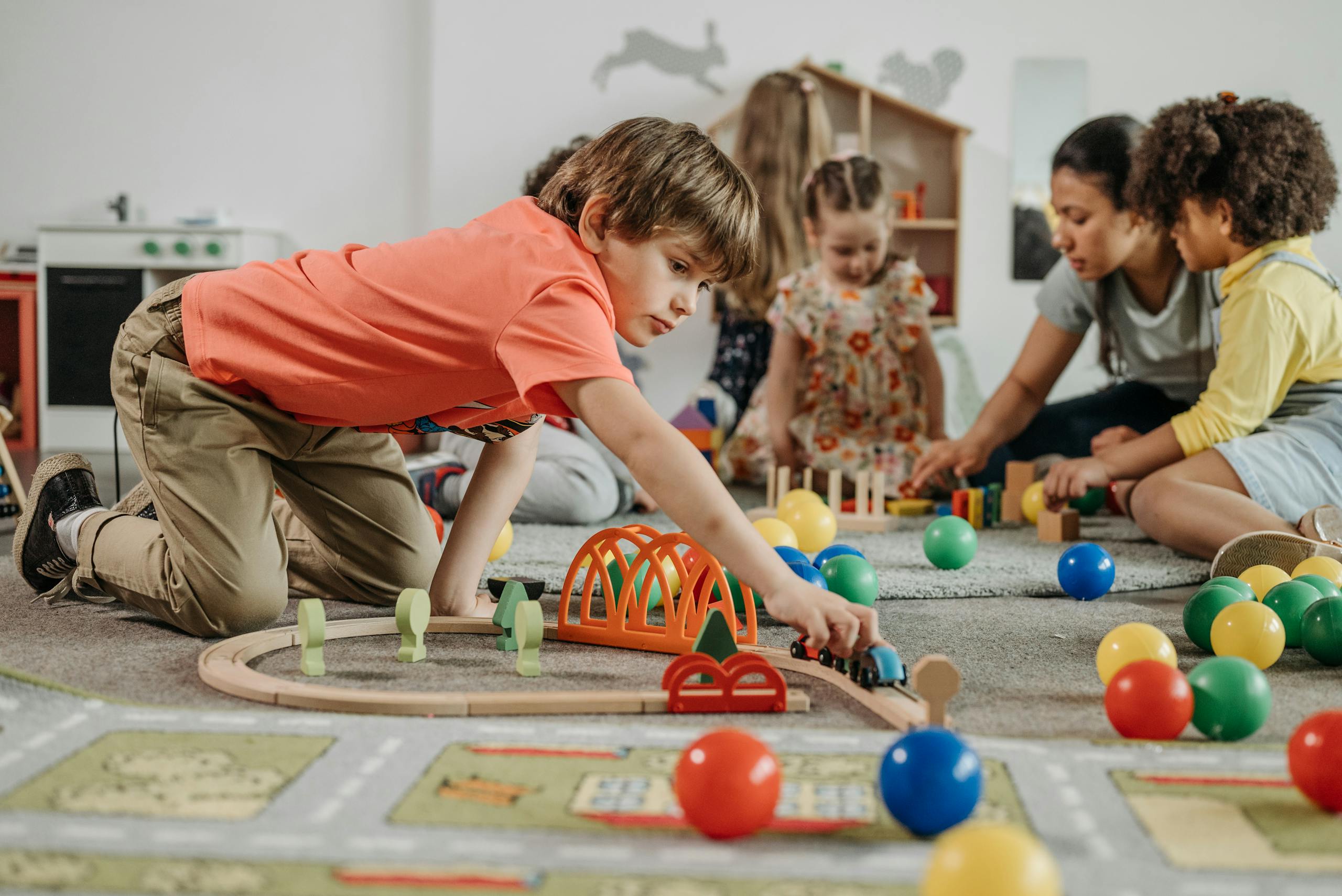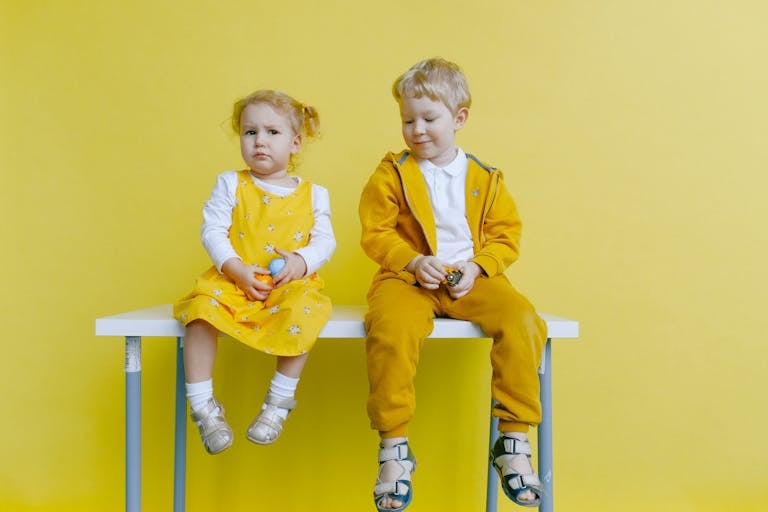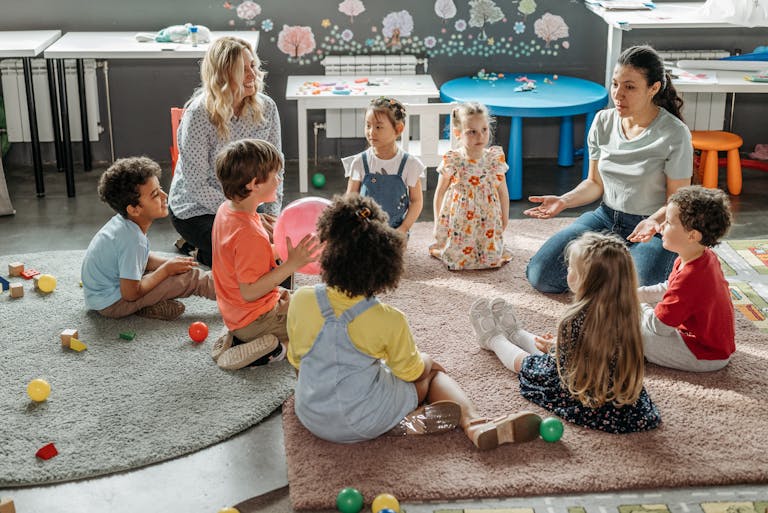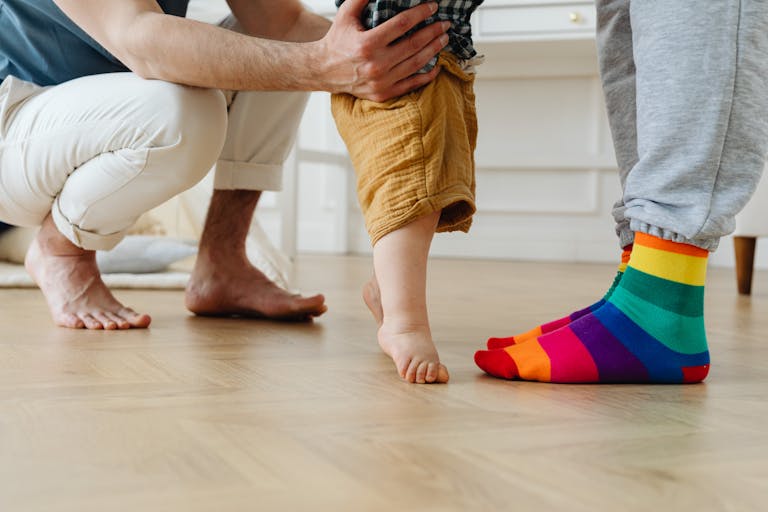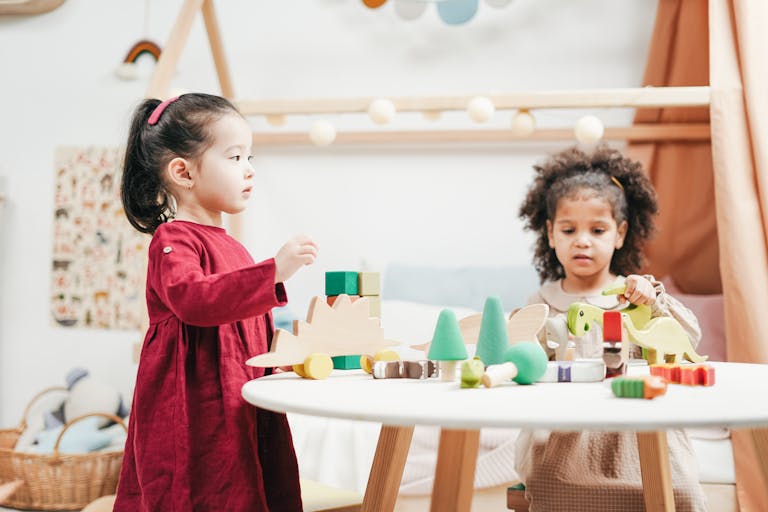Ever feel overwhelmed walking down the toy aisle, staring at endless rows of flashing, beeping gadgets that promise to turn your little one into the next Einstein? You’re not alone! Between the marketing buzz and your toddler’s selective attention span, choosing toys that matter can feel like solving a puzzle with half the pieces missing.
Here’s the thing: choosing the right educational toy—a category of toys specifically designed to promote learning and development—is an absolute game-changer for preschoolers. We’re not talking about boring “educational” stuff that sits untouched in the corner. We mean toys that sneak learning into playtime so cleverly that kids don’t even realize they’re developing crucial skills like problem-solving, creativity, and fine motor coordination.
This guide will walk you through 10 expert-recommended educational toys that strike that sweet spot between fun and development. These aren’t just great toys your preschooler will love—they’re investments in skills that will serve them well beyond the playroom, helping children begin their learning journey. Ready to make toy shopping a whole lot easier?
Why Educational Toys Matter
Think of educational toys as sneaky little teachers kids want to hang out with! While your preschooler is busy building towers or pretending to cook dinner, their brain works overtime, developing critical skills.
Children’s brains are like supercharged learning machines during the preschool years (ages 3-5). This is when they’re mastering fine motor skills, developing hand-eye coordination, and starting to understand basic concepts like counting, letters, and problem-solving. Research and expert recommendations confirm that the right toys can support these developmental milestones while keeping kids engaged and entertained.
Educational toys also encourage independent play, giving kids and parents a breather. These toys can inspire new ideas for play and learning, helping your little one gain confidence tackling challenges on their own, while you get those precious few minutes to drink your coffee while it’s still warm. Everyone wins!
10 Must-Have Educational Toys for Preschoolers
1. LEGO Duplo (Building Blocks)
The LEGO Duplo set of building blocks is the MVP of educational toys. With its chunky, colorful blocks, this product is perfect for little hands and big imaginations. Kids develop fine motor skills as they connect pieces, spatial reasoning as they build structures, and problem-solving skills when their tower inevitably topples over.
The beauty of Duplo is its open-ended nature—there’s no wrong way to play. One day, your child might build a castle, the next day it’s a spaceship. With a wide range of structures and creations possible, children can explore endless building opportunities. This flexibility keeps the toy fresh and interesting for years.
Playing with this product can inspire children to become tomorrow’s engineers, scientists, and innovators.
2. Magnetic Tiles
Magnetic tiles are like magic for preschoolers. These colorful, translucent squares and triangles come as tiles that snap together with satisfying clicks, creating endless building possibilities. They’re fantastic for developing hand-eye coordination and introducing basic engineering concepts.
Kids love the instant gratification of magnetic connections, and parents love that cleanup is relatively painless. Children can use these sets to build different systems and structures, encouraging creativity and problem-solving. Watching your child figure out how to make a stable tower or create patterns is pretty amazing.
Magnetic tiles are a great addition to any home play area, providing opportunities for learning and imaginative play outside the classroom.
3. Fisher-Price Code-a-Pillar
Don’t worry—we’re not suggesting your 4-year-old learn Python! The Code-a-Pillar is an educational toy that introduces basic coding concepts through play, all without software. Kids connect different segments to make the caterpillar move in various patterns, learning cause-and-effect and logical sequencing.
This toy brilliantly introduces STEM concepts without feeling like work. Children discover new patterns and sequences as they play, engaging in exploration that promotes learning and creativity. Kids think they’re just playing with a cute caterpillar, but they’re developing critical thinking skills that will serve them well in our increasingly digital world.
4. Lacing Beads
Lacing beads might look simple, but they’re powerhouses for fine motor development. A set of lacing beads allows children to thread beads onto a string, which requires precision, concentration, and patience—all skills that will help with writing and other detailed tasks later on. Kids can also use a set to create their own patterns and designs, encouraging creativity and a sense of ownership.
Many lacing bead sets come with pattern cards, which introduce early math concepts like sequencing and pattern recognition and even help children learn numbers. It’s meditation disguised as play!
5. Pretend Kitchen Sets
A play kitchen is like a creativity laboratory for preschoolers. Kids develop social skills through role-play, practice following sequences (recipe steps), and exercise their imagination. Pretend kitchen sets encourage children to interact with other people during play, fostering cooperation and communication. They also unconsciously learn about nutrition, meal planning, and family dynamics.
The beauty of pretend play is that it helps kids process real-world experiences. These sets help children understand roles and routines at home, making the home environment a central setting for imaginative learning. Don’t be surprised if your little chef starts “cooking” elaborate meals and insisting you try their invisible soup!
6. Doctor Kits
Like kitchen sets, doctor kits encourage imaginative play while helping kids understand and process real-world scenarios. Many children feel anxious about medical visits, but playing doctor can help normalize these experiences.
These kits also develop empathy as children care for their “patients” (usually stuffed animals or willing family members). Doctor kits teach children how to protect and care for their patients, reinforcing the importance of safety and well-being. Plus, using toy stethoscopes and thermometers builds fine motor skills.
7. Phonics Flashcards
Before you roll your eyes at “flashcards,” hear us out! Modern phonics cards are interactive and game-based, nothing like the drill-and-kill approach you might remember. They introduce letter sounds and early reading concepts through songs, games, and colorful illustrations.
These cards build phonological awareness, which is crucial for reading success. Many sets include audio components, making them perfect for kids who learn better through listening. Studies have shown that children who use phonics flashcards learn letter sounds more effectively and retain them longer than those using only traditional methods.
8. Alphabet Puzzles
Alphabet puzzles combine two learning powerhouses: letter recognition and problem-solving. Kids develop spatial reasoning and persistence as they figure out where each piece fits. The letter shapes become familiar through repetition, supporting early literacy.
One featured alphabet puzzle, known for its engaging design and educational value, is especially popular among parents and educators.
Look for puzzles with pictures that match each letter (A is for Apple). This reinforces letter-sound connections and builds vocabulary simultaneously.
9. Counting Games
Math doesn’t have to be scary! Counting games use play to introduce number recognition, one-to-one correspondence, and basic addition concepts. Board games with dice, counting bears, or number-matching activities all build mathematical thinking.
These games also develop patience and turn-taking skills—bonus social-emotional learning disguised as fun. Consider purchasing a counting game to support your child’s early math development.
10. Storytime Puppet Sets
Puppets are magical for building communication skills and confidence. Shy children often open up when they have a puppet friend to “help” them talk. Puppets encourage children to interact with stories and characters, making storytime more engaging and hands-on. Storytelling with puppets develops narrative skills, vocabulary, and creative thinking.
Puppet play also builds emotional intelligence as children explore different characters and scenarios. It’s therapeutic play at its finest!
How These Toys Support Development
Toys can do so much more than entertain—they can help children grow and learn meaningfully. The right toys can support important skills by engaging their minds and bodies. Active play with educational toys also supports healthy bodily systems in children, such as the immune, endocrine, and cardiovascular systems, promoting overall physical health and helping prevent issues like obesity and ADHD. Let’s break down how these toys target specific developmental areas:
Fine Motor Skills: LEGO Duplo, magnetic tiles, and lacing beads all require precise hand movements that strengthen the small muscles needed for writing. These toys provide hours of “practice” that doesn’t feel like work.
STEM Learning: The Code-a-Pillar and counting games introduce logical thinking and mathematical concepts. Magnetic tiles teach basic engineering principles as kids learn what makes structures stable or unstable.
Imaginative Play: Kitchen sets, doctor kits, and puppet sets encourage creativity and help children process real-world experiences. This type of play builds emotional intelligence and social skills.
Early Literacy: Phonics flashcards and alphabet puzzles lay the groundwork for reading success by making letters and sounds familiar through repetition and play.
Choosing the Right Toys for Your Preschooler
Choosing the right toys for your child can feel overwhelming, but it doesn’t have to be. The key is to focus on their interests, developmental stage, and safety. Parents can visit a dedicated shop for educational toys to conveniently find options that support their child’s learning and development. Here are some tips to guide you:
- Consider age-appropriate options: Pick toys designed for your preschooler’s developmental stage to ensure safety and engagement.
- Match toys to interests: Choose toys that align with your child’s favorite activities, like building blocks for little builders or art supplies for creative minds.
- Focus on safety: Ensure the toys meet safety standards, avoiding small parts or sharp edges that could pose risks.
- Opt for durability: Invest in high-quality toys that can withstand active play and last longer.
- Support skill development: Look for a product that encourages a mix of motor, cognitive, and social skills to promote balanced growth.
Before You Go Toy Shopping…
Remember, these 10 toys represent different learning categories, but you don’t need to make every purchase simultaneously! Start with one or two that match your child’s interests and developmental needs. Quality trumps quantity every time.
The best educational toys grow with your child, offering different challenges as skills develop. For example, our featured toy in this list is especially versatile and popular among parents. Many of these toys will provide entertainment and learning opportunities for years, making them solid investments in your child’s development.
Turn Playtime Into Learning Time
Investing in thoughtful educational toys transforms ordinary playtime into meaningful learning experiences. These toys help children discover new skills and interests as they play. These 10 must-have toys offer the perfect blend of fun and development, supporting everything from fine motor skills to creative thinking.
The beauty of educational toys is that learning happens naturally through play. For example, interactive devices like the LeapPad engage children with computer-like features and content designed to support literacy and education. Your preschooler won’t feel like they’re “doing school”—they’ll just be having fun while building skills that will serve them throughout their educational journey.
Ready to make some strategic toy purchases? Start by observing what captures your child’s attention during play. Are they natural builders? Do they love pretend play? Use these observations to guide your choices, and remember—the best toy is one that sparks joy and curiosity in your unique little learner.
A wide range of educational toys is available to suit different interests and learning styles. Investing in meaningful play isn’t just about toys—it’s about nurturing the natural curiosity and creativity that will fuel your child’s lifelong love of learning!
